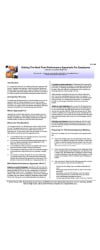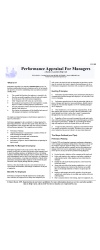What jumps out, if you refuse to “take sides” is that both parents and teachers make similar mistakes, not only when talking about difficult issues online, but also when they meet to discuss the welfare of children. It’s not so much that parents or teachers are “bad”. Its that both groups care a lot, and the issue of how children are to be best educated is an emotional one.Here are five errors that both parents and teachers make in their discussions.
When things get heated between teacher and parent, each starts to blame the other for the conversation going badly, but the irony is that often BOTH are making the same mistakes that get in the way of solving educational issues. It’s time to trash these errors.
When emotions run high, it’s easy to draw quick conclusions about the other person (don’t care, bad parent, lousy teacher) — to judge the other person, even if we don’t know them well. The problem here is that a quick judgment closes off our thinking, and shuts down our ability to hear what the other person is saying, and notice, not only the points of disagreement, but also the points of agreement.
Prescription: First seek to understand, before judging.
In emotional situations, we have a tendency to go into “WIN” mode, where the actual point of disagreement gets lost, as both parties try to win the argument. The result is that each party ends up talking at the other, and somehow trying to win the conversation by being forceful. This often distracts the conversation from actually solving the problem, or addressing the issue together.
Prescription: Step back. Focus on the welfare of the child and remember that many educational problems cannot be solved by the teacher alone, or the parent alone but require both working together. There’s no WIN in arguments about children.
A label is a way of categorizing the other person. For example, “She’s a bad teacher”, or “This parent is ignorant.” The problem with labelling is that it slots the person into a category that’s probably inaccurate, and reflects the labeller much more than it reflects the reality of the other person. It creates a negative mind set for the discussion.
Prescription: Pay attention to the labeling you do in your head. We all do it. Recognize that those internal comments are probably grossly inaccurate.
Both teachers and parents have a tendency, particularly for emotional issues, to believe that they know best what is best for the child. It’s understandable. But often it’s wrong. Here’s why. Parent and teacher have different experiences with a child. They see different sides of the child, because often the child behaves differently at school than at home. Hence, each has information about the child that the other lacks. To solve educational problems, it’s best to have as much information from different perspectives, and for each party to recognize the value of the other’s insights.
Prescription: Acknowledge that you know a lot, but you don’t know everything and that the other person has valuable, even essential information that can be used to improve the welfare of the child.
Teachers have both good and bad experiences with parents, while parents have a range of positive and negative experiences with schools, going back to when they were students. Discussion are often conditioned and affected by the agendas and past experiences, and yes, stereotypes people bring to the conversation. But what’s past is past. A parent who hated school as a child will have a tendency to come into parent teacher conversations with a view of schools based on his or her experience as a child. Teachers, too, who have heard parents say the same things over the years, and often not pleasant things, can too easily write the parent off as “just another pissed off parent”.
Neither perceptions are valid, and again reflect more on the holder of the perceptions and stereotypes, not the other person. We all have past experiences. We shouldn’t let them poison our interactions when it comes to children.
Prescription: Try to start each conversation off with a clean slate. If you go in with an expectation of a bad outcome, or with negative stereotypes, you will end up creating self-fulfilling prophecies, and we can’t help children that way.
These five “mistakes” don’t mean you are a poor parent or a poor teacher. We all make them because it’s just how humans often behave when under stress. But let’s keep in mind that both parent and teacher have the same ultimate goals, but often different perspectives that should be harnessed to make school life better for each child.
Robert Bacal holds an M.A. in Educational Psychology, and has worked extensively with educators to improve their classroom teaching. He is also the author of Building Bridges Between Home And School: The Educator’s/Teacher’s Guide To Dealing With Emotional And Upset Parents.
If you are a teacher, principal, school board member or school staff member, you may also be interested in
It Takes A Village To Teach A Child: Building Bridges Between Schools And Parents (Website)





